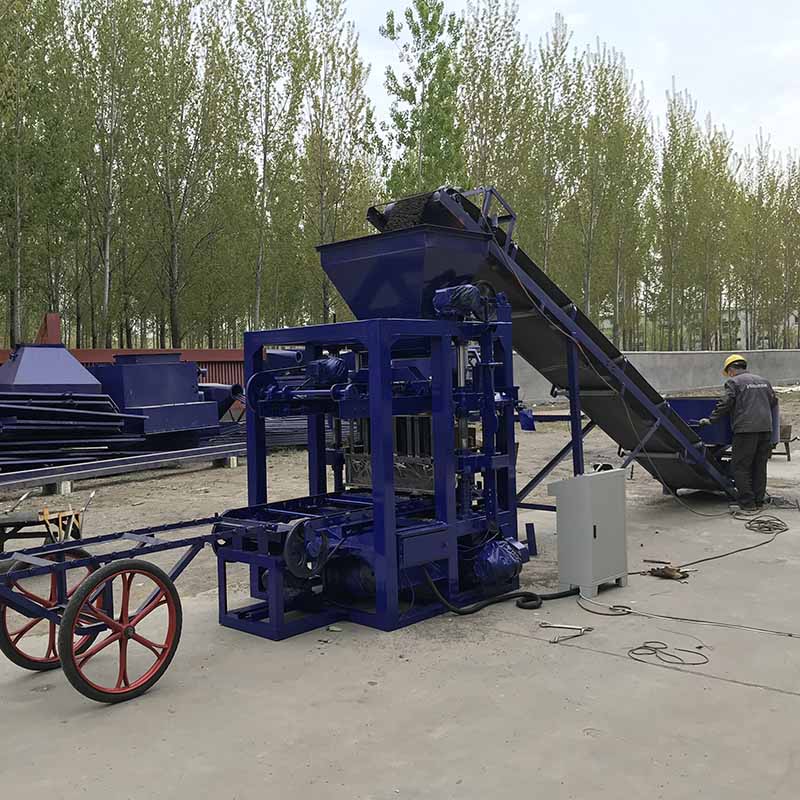
Image source:Aiwei block machine
Introduction
The construction industry is evolving rapidly, driven by innovations in building materials, techniques, and technologies. Among these advancements, solid block production has gained prominence as a key method for creating high-quality building materials. Quality assurance in solid block production is paramount, as these blocks form the foundation of many structures worldwide. This article delves into the importance of quality assurance in solid block production, examining the processes, standards, and technologies that ensure excellence in building materials.
Understanding the Significance of Quality Assurance
Quality assurance in solid block production involves a series of systematic processes and procedures designed to guarantee that blocks meet specified standards and requirements. The significance of this practice lies in its ability to ensure the structural integrity, durability, and safety of buildings. Poor-quality blocks can lead to structural issues, increased maintenance costs, and even safety hazards, making quality assurance a fundamental aspect of the construction industry.
Raw Material Quality
Quality assurance begins with the selection of raw materials. The composition and quality of materials, such as aggregates, cement, water, and admixtures, significantly impact the characteristics of the final solid blocks. To maintain consistent quality, producers must source materials from reputable suppliers and conduct thorough material testing and analysis. Regular material inspections and adherence to established standards, such as ASTM (American Society for Testing and Materials) or EN (European Norm) specifications, are essential.
Mix Design Optimization
The mix design process is critical in solid block production. It involves determining the ideal proportions of raw materials to achieve the desired block properties, including strength, density, and durability. Quality assurance in mix design optimization entails:
a. Comprehensive testing: Producers must conduct comprehensive tests on various mix designs to identify the most suitable combinations.
b. Adherence to standards: The mix design should align with industry-specific standards and guidelines.
c. Consistency: Quality assurance processes ensure that the chosen mix design remains consistent throughout production batches.
State-of-the-Art Block Machines
The quality of solid blocks produced is significantly influenced by the block-making machines used. Modern block machines equipped with advanced technology provide precise control over the production process. These machines enable the precise measurement of materials, uniform compaction, and consistent block curing. Quality assurance in this context involves regularly maintaining and calibrating machines, ensuring they operate optimally.
Quality Control During Production
To maintain consistent block quality, producers implement rigorous quality control measures during production. These measures include:
a. Regular inspections: Visual inspections of blocks during and after production to identify defects, such as cracks or surface irregularities.
b. Compressive strength testing: Routine testing of blocks for compressive strength to verify that they meet or exceed specified requirements.
c. Dimensional accuracy checks: Ensuring that blocks conform to established size and dimensional standards.
Curing and Handling
The curing process significantly impacts block quality. Quality assurance in curing includes:
a. Proper curing environments: Maintaining the appropriate temperature and humidity conditions for curing to optimize block strength and durability.
b. Curing duration: Ensuring that blocks remain in the curing chamber for the prescribed period to achieve the desired properties.
Compliance with Standards and Regulations
Quality assurance in solid block production necessitates strict compliance with industry-specific standards and regulations. Different regions and countries may have their own sets of standards governing block quality, and producers must adhere to these standards to ensure the acceptability of their products in the construction market.
Testing and Certification
Third-party testing and certification are common practices to verify the quality of solid blocks. Independent laboratories conduct comprehensive tests on block samples to confirm their compliance with established standards. Certification provides assurance to builders, contractors, and consumers that the blocks meet the required quality criteria.
Continuous Improvement
Quality assurance is an ongoing process that involves continuous improvement. Producers should regularly assess their processes, materials, and equipment to identify areas for enhancement. By embracing new technologies and best practices, they can refine their production methods and consistently deliver high-quality solid blocks.
Environmental Considerations
Sustainable and environmentally friendly practices are increasingly important in solid block production. Quality assurance includes evaluating the environmental impact of production processes and exploring ways to reduce energy consumption, water usage, and waste generation.
Conclusion
Quality assurance in solid block production is essential for ensuring that the building materials used in construction meet stringent standards and provide long-lasting, safe, and structurally sound buildings. By focusing on raw material quality, mix design optimization, state-of-the-art block machines, quality control during production, curing and handling, compliance with standards and regulations, testing and certification, continuous improvement, and environmental considerations, the construction industry can rely on solid blocks that contribute to sustainable, high-quality building practices. Quality assurance is the cornerstone of excellence in the construction industry and serves as the foundation for constructing a safer, more durable, and sustainable built environment.
